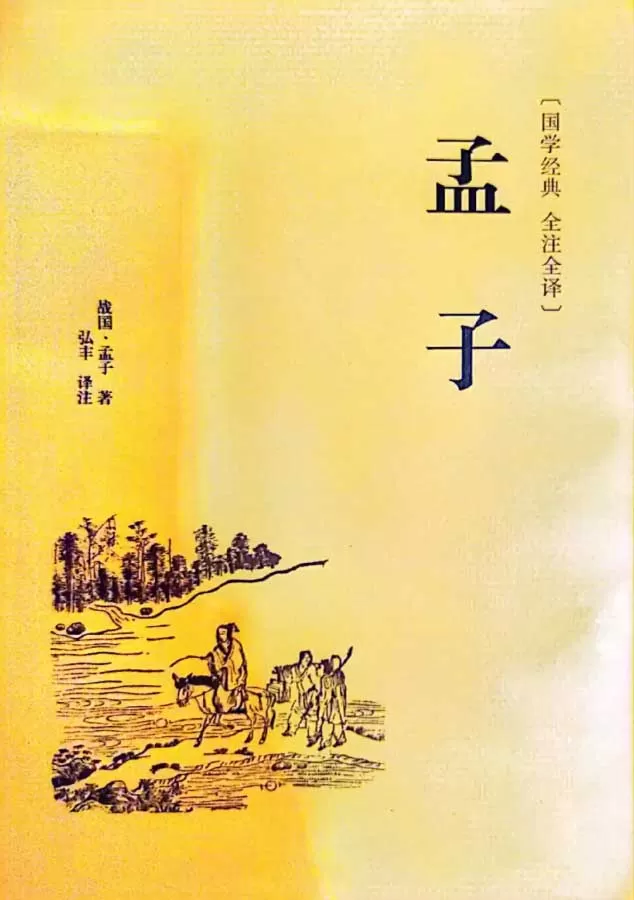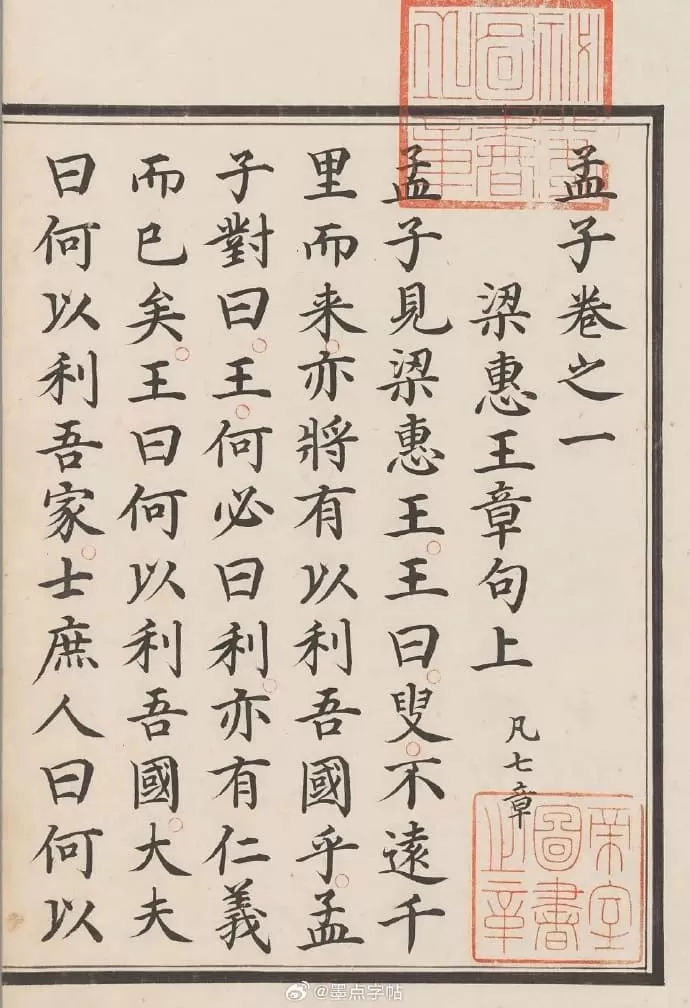
Mencius, a classic work of Confucianism, was composed by Mencius and his disciples, including Wan Zhang and Gongsun Chou, during the mid-Warring States period. It was first mentioned in Zhao Qi's "Preface to Mencius," which states, "This book was written by Mencius, hence it is collectively called Mencius." Mencius was later included by Zhu Xi of the Southern Song Dynasty as one of the "Four Books" (the other three being The Great Learning, The Doctrine of the Mean, and The Analects).
The Book of Han: Treatise on Literature and Art records eleven chapters of Mencius, of which seven chapters, totaling fourteen scrolls, survive today. The total word count is over 35,000, comprising 260 chapters. It is said that there were four additional "Outer Chapters of Mencius," which are now lost (the existing "Outer Chapters of Mencius" attributed to Yao Shicun of the Ming Dynasty are forgeries). The book contains Mencius' and his disciples' political, educational, philosophical, and ethical ideas, as well as their political activities. Ancient examinations primarily tested knowledge of the "Four Books" and the "Five Classics."
Mencius, as one of the "Hundred Classics of Excellent Traditional Chinese Culture," was published in 2021.
The language of Mencius is clear, straightforward, plain, and accessible, yet concise and precise. As prose, Mencius excels in debate and possesses artistic expressiveness, making it a work of literary prose. The argumentative essays skillfully employ logical reasoning, with Mencius adept at using analogical reasoning, often employing a strategy of pretending to follow the other's lead, repeatedly questioning and indirectly leading the opponent to his preconceived conclusion, as exemplified in "King Hui of Liang, Part II."
The majestic and awe-inspiring tone is a significant stylistic feature of the prose in Mencius. This style stems from the power of Mencius' personal cultivation. Those who possess such a noble spirit can mentally overpower others, disdain political power, scorn material greed, exhibit extraordinary courage, uphold righteousness without fear or favor, and act selflessly and fearlessly. Mencius extensively uses parallelism, repeated phrases, and other rhetorical devices to enhance the momentum of the text, making it as powerful and unstoppable as a surging river.

Provides The Most Comprehensive English Versions Of Chinese Classical Novels And Classic Books Online Reading.
Copyright © 2025 Chinese-Novels.com All Rights Reserved
